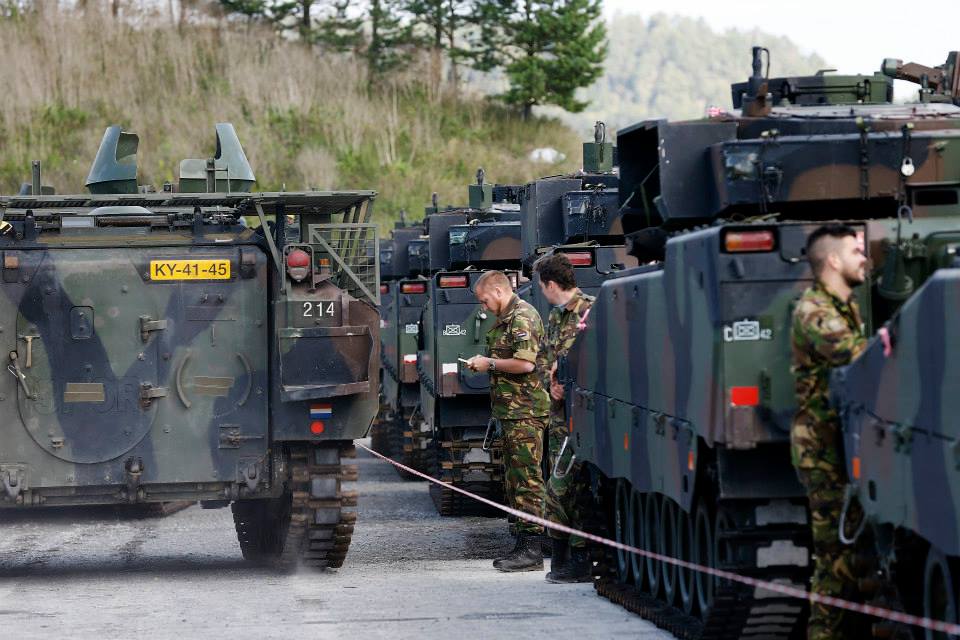Norway and Sweden to purchase railroad cars to transport military equipment
13 August, 2024 Transportation of armored vehicles by rail in Norway during NATO exercises in 2018. Photo credits: Njal Svingheim The Armed Forces of Norway and Sweden have signed an agreement with the Norwegian state-owned railway company Bane NOR to purchase new railroad cars to transport military equipment.
The company's press service reported on this. The cooperation agreement covers the new transportation needs of Norway and the Nordic countries. The purchase of new freight cars will enhance the ability to transport heavy military equipment by rail, including new main battle tanks.
This agreement should significantly improve opportunities for military rail transportation in and between Norway and Sweden, as well as to other European countries.
 Armored vehicles of the Armed Forces of Sweden. Photo credits: Antonia Sehlstedt/Forsvarsmakten
Armored vehicles of the Armed Forces of Sweden. Photo credits: Antonia Sehlstedt/Forsvarsmakten
The joint procurement requirements ensure that the railroad cars will be of the same type and meet the military needs of Norway and Sweden, as well as applicable regulations. It is noted that when the Norwegian railroad cars are not used by the Armed Forces, they can be used for the needs of the railway company Bane NOR and can also be leased for civilian freight transportation.
The military is pleased with the new cooperation agreement, which they believe strengthens the joint defense capabilities of both countries. Amid security threats in Europe after a full-scale Russian attack on Ukraine, the possibility of rapid cross-border transportation of military equipment to ensure common defense is very important. In June, Norway, Finland, and Sweden agreed to create a cross-border military transport corridor to facilitate the transfer of military equipment and personnel between the countries.
 Norwegian military.
Norwegian military.
Photo credits: Ministry of Defense of Norway
The defense ministers of the three countries have been instructed to work on the corridor in cooperation with civilian actors.
Together, they will identify bottlenecks, update the necessary regulations and legislation, and invest in the necessary infrastructure.